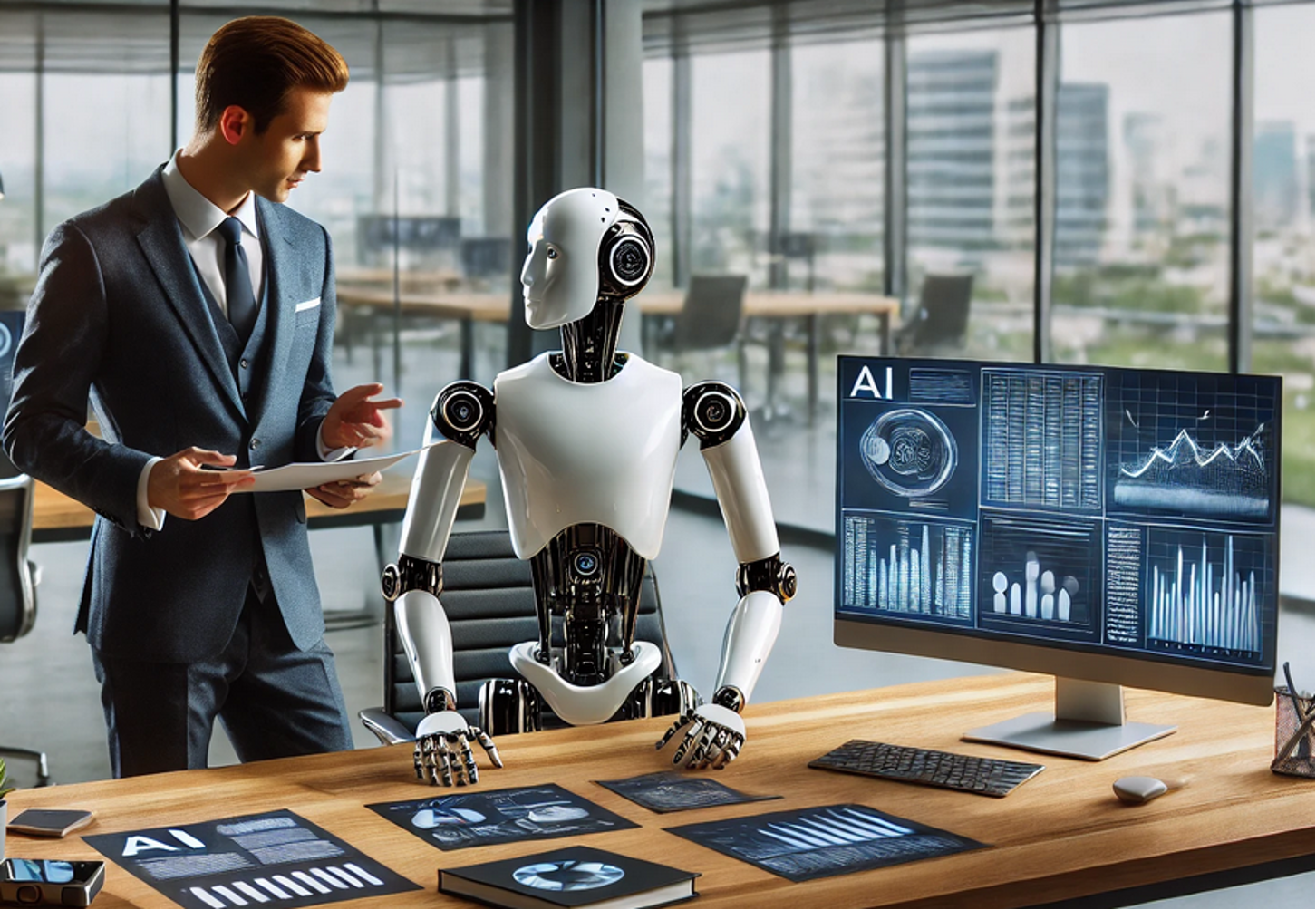Automation and artificial intelligence (AI) have steadily transformed industries, driving incredible efficiency and innovation across sectors. However, as AI continues to advance exponentially, these changes pose profound implications for the workforce and hiring processes. Jobs are being redefined, skills are becoming obsolete faster than ever, and businesses are being forced to rethink how they source, evaluate, and cultivate talent. To stay competitive, companies must adopt a dual approach: embrace a culture of continuous upskilling and revamp hiring practices to focus on adaptability, creativity, and complex problem-solving—traits AI cannot easily replicate.
The Skills Revolution: Why Upskilling is Critical
The “Fourth Industrial Revolution”, driven by AI, automation, and data analytics, is reshaping the nature of work. Routine, repetitive tasks and decision-making are increasingly being handled by machines, from basic data entry to complex data analysis, customer service, and even legal research. As automation encroaches on these areas, the skills that employees need are shifting toward more human-centered capabilities.
- Skills of the Future: While AI can analyze data at unprecedented speed and scale, it struggles with skills like creativity, emotional intelligence, leadership, and nuanced problem-solving. As a result, these skills are now seen as the most valuable assets in the workplace. Employees must develop competencies in areas like critical thinking, collaboration, innovation, and emotional intelligence to stay relevant.
- Lifelong Learning: The half-life of skills is shrinking. A May 2023 report by the World Economic Forum found that by 2025, 44% of the skills employees need will have changed. This calls for a shift from static education models to continuous learning frameworks. Employees need to be prepared to regularly reskill and upskill to keep pace with technological changes.
- Cross-Disciplinary Expertise: As industries become more interconnected, there’s an increasing demand for workers with cross-disciplinary expertise. Individuals who can combine technical knowledge (e.g., AI, data science, programming) with business acumen and people skills will be highly sought after. For instance, understanding how AI can drive business strategy, and communicating those ideas effectively, are crucial abilities in today’s market.
Rethinking Hiring Processes
As companies undergo digital transformation, traditional hiring methods, which often prioritize specific technical expertise and experience, are becoming outdated. AI-driven automation, along with the demand for more human-centered skills, requires a fundamental change in how organizations evaluate and hire talent.
- Hiring for Adaptability and Growth Potential: Instead of focusing solely on qualifications and technical skills, organizations should place greater emphasis on traits like adaptability, curiosity, and a growth mindset. AI will continue to evolve, and the ability to learn and apply new concepts quickly will outlast specific technical skills that may soon be automated. Companies need to evaluate candidates not only based on what they know but also on their capacity for learning and adapting to future challenges.
- Embracing AI in Hiring: AI itself can be a valuable tool in improving hiring processes. AI-driven systems can help analyze resumes, assess candidates’ soft skills through behavioral data, and even predict long-term success in a role based on personality traits and past performance. These tools can reduce biases, improve the efficiency of the hiring process, and help companies find candidates who are not only qualified but culturally aligned with the organization’s mission.
- Redefining Roles: As automation becomes more integrated into business operations, job roles will need to be redefined to complement the capabilities of AI. For instance, instead of hiring purely for data entry roles, companies may seek individuals who can interpret and leverage data generated by AI tools to inform strategic decisions. HR and talent acquisition teams will need to shift from hiring for traditional job descriptions to sourcing candidates who can navigate new, AI-enhanced environments.
- Emphasizing Remote and Hybrid Work: The COVID-19 pandemic accelerated the adoption of remote work, and AI is enhancing this trend by enabling better communication, collaboration, and project management across dispersed teams. Hiring processes must adapt to this new reality by assessing candidates’ ability to thrive in remote or hybrid work environments. Flexibility, self-discipline, and digital fluency are becoming as important as technical skills.
The Role of Organizations: Investing in Human Capital
To prepare for an AI-driven future, businesses must not only focus on hiring the right talent but also take responsibility for upskilling their current workforce. A culture of continuous learning, supported by access to training, mentoring, and development opportunities, is essential for retaining employees and ensuring they can grow alongside the company.
- Corporate Training Programs: Offering regular, targeted training programs in emerging technologies, data literacy, and soft skills can equip employees to take on new roles as the company evolves. These programs should focus not just on technical skills but on fostering creativity, leadership, and collaboration.
- Encouraging Innovation and Experimentation: Companies can foster a culture of innovation by encouraging employees to experiment with AI and automation tools, apply them to existing processes, and suggest improvements. By empowering workers to think critically and contribute to technological advancements, businesses can create a more agile and adaptable workforce.
- Collaboration with Educational Institutions: To ensure that future workers are prepared for the AI revolution, companies can partner with educational institutions to co-create curriculum that aligns with the emerging needs of industry. This can also include sponsoring internships, apprenticeships, and co-op programs that allow students to gain firsthand experience in AI-driven environments.
Summing up
As AI and automation continue to evolve, companies cannot afford to cling to outdated hiring and talent development models. The future belongs to organizations that prioritize adaptability, human-centered skills, and a commitment to lifelong learning. By upskilling current employees and rethinking hiring processes to focus on potential and flexibility, businesses can thrive in an era where technology changes faster than ever before.
To excel as individuals we must grow beyond surviving automation.

